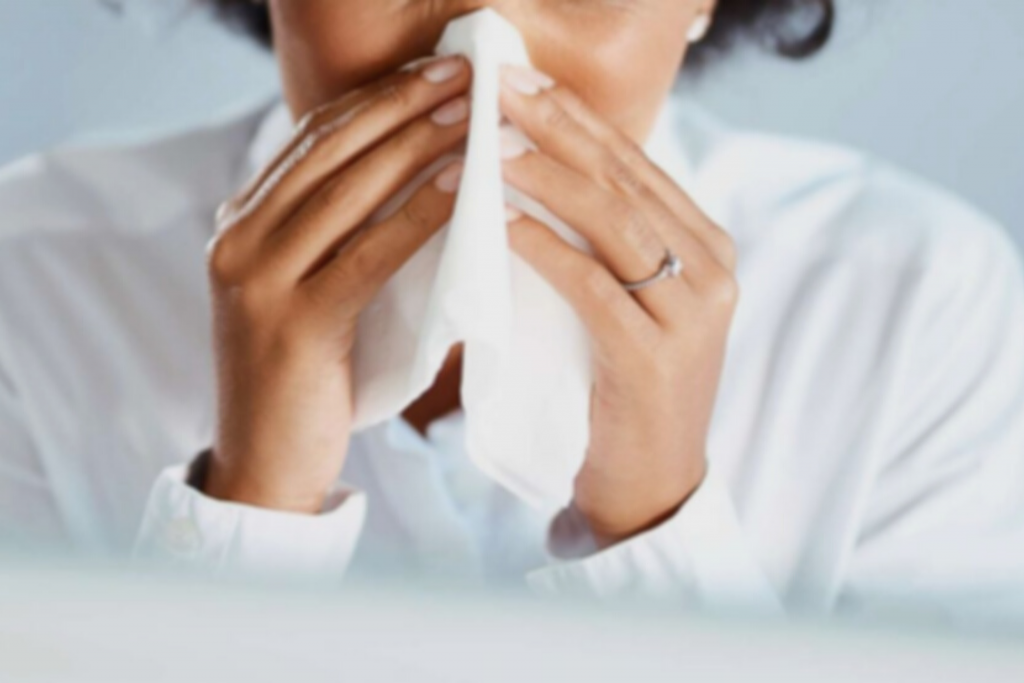How does the immune system work?

The main aim of this article is to make everyone feel just that little bit safer than they might feel right now. Because, although we have all the physical protections like hand washing, masking, good ventilation and the social distancing that we have to practice, we do have one important extra thing that we can do and that’s strengthening our immune system.
If your immune system is strong, you can be in the presence of a virus and still not be affected by it, because the immune system will overpower these things as they invade. It is only when we are exposed to a very heavy viral load that this may overwhelm our immune system, and this is why we have to make sure our immunity is as robust as possible.
Even if we succumb to a disease, if our immune system is in peak condition, the chances are we’ll recover more rapidly, or we may have a less severe experience of that disease. You may wonder why the government doesn’t tell us that, because it’s, not part of the medical system, but it’s, definitely something extra that we can do help protect ourselves.

The immune system is quite complex, and I’m not even going to try and explain all the science, because it’s not necessary to learn all that to understand how to protect yourself. We just need a basic understanding of how it works.
Broadly speaking the immune system has two parts: it has the innate system and the adaptive system. The innate system comprises physical barriers like your skin and the mucous membranes in your nose and your throat, and these work to block pathogens or germs from entering the body.

Now if they do get in, through a cut for example, the immune system immediately initiates the inflammation process which sends the white blood cells, we’ll call them the first responders, to the site to flush out the pathogens with blood and the lymph fluid.
Then there’s the adaptive system. The adaptive system notes every pathogen it is exposed to and manufactures antibodies to fight that pathogen. This is the reason we seldom catch measles or chicken pox more than once.
When we are exposed to a new pathogen however, the adaptive system cannot help us because it doesn’t recognise it. It’s up to our innate system to cope, and herein lies the problem for older adults.
When we age, our bodily systems tend to slow down, and this includes the innate immune system. This is partly because the bone marrow manufactures white blood cells more slowly, and also because the Thymus gland, which also helps with the manufacture of white blood cells is no longer functioning as we age.

Add to that the likelihood of older adults having additional co-morbidities, such as type 2 diabetes, and we have an immune system that may struggle to cope with an aggressive new virus. However there is much we can do to strengthen our immunity at any age. The immune system may have slowed, but it still functions, and it’s up to us to make sure that it functions at peak capacity.
How to boost your immune system quickly
The first thing you can do is to take steps to improve your general health. Make sure any health issues are being taken care of; visit your doctor regularly, make sure your diet is fresh and varied and have a plan to lose weight, if you’re overweight. Also make sure your fluid intake is sufficient and that you’re taking at least 30 minutes of exercise a day.
Stress is an immune system depressor, so try to relax as much as you can. Deep breathing is great for stress relief. Practice this hourly if you’re feeling anxious and make sure that you breathe all the way down into the diaphragm. This will engage the ‘Vagus’ nerve, which has a calming effect.
There are more specific steps you can take to strengthen your immunity. Ensure you have sufficient intake of the following supplements to boost the immune system:
Vitamin D3 – This is probably the most important vitamin for immunity, yet many people are deficient in D3. This applies mainly to those living in a cold climate, as vitamin D is formed by the action of sunlight on the skin. Typically I would advise a blood test to check level of vitamin D, but at this point in time, if you’re living in winter with no sun exposure, grab yourself some vitamin D3 and take at least 1,000 iu a day.

Vitamin C – Humans cannot store this vitamin in their body, so unless your diet is high in fruits and vegetables, a daily vitamin C will be of benefit as it enhances several immune system parameters and increases resistance against viruses. It’s a safe and cheap vitamin too.
Zinc – Zinc is a mineral that is crucial for maintaining the immune systems cells. It may also stop viruses from lodging in the mucus membranes and thus stop the viruses from multiplying. The best zinc supplement for immune system is in the form of zinc glycinate as this is well absorbed.
The role of vitamins in immunity is to supplement any shortfall in the diet. But even if your diet is good, our digestive systems don’t absorb nutrients as well as they did when we were young. I strongly recommend a probiotic supplement for those over 50, especially after a meal containing meat, as this is harder to digest.
If you implement all the above, you can be confident your immunity will grow stronger and that you will be better protected when it comes to exposure to pathogens of all kinds!
